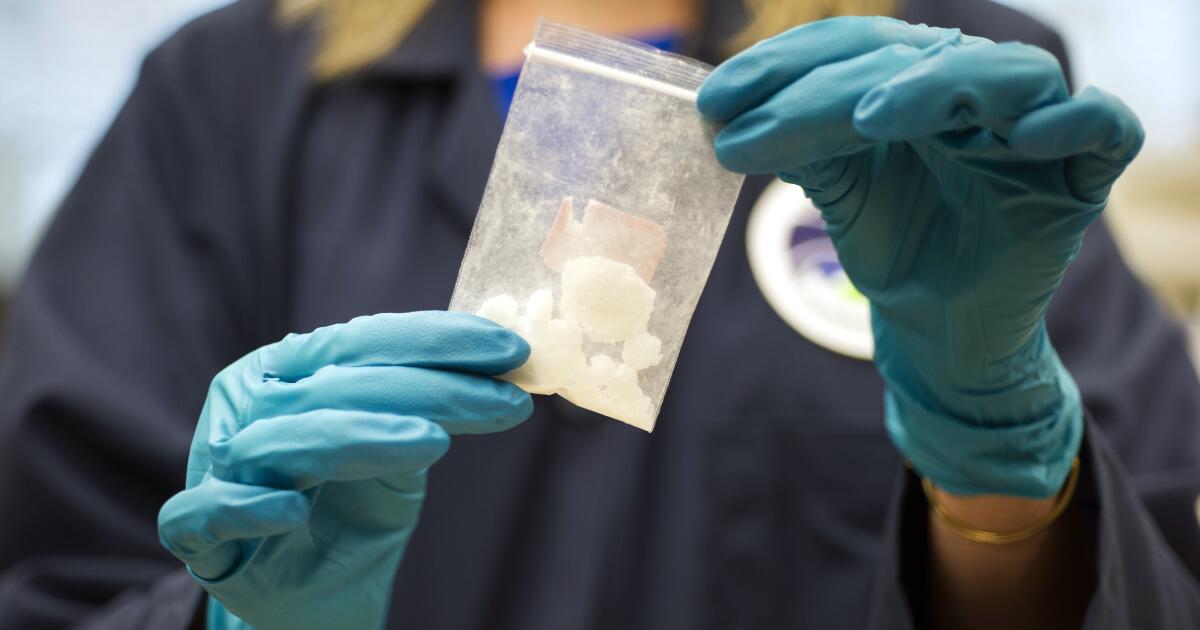About 90% of the fentanyl seized at the border in recent years was at legal crossings, which undocumented migrants generally avoid, and 91% of the seizures were from U.S. citizens, according to Border Patrol data. It’s much easier to transport fentanyl pills or powder in one of the thousands of vehicles that pass through legal ports of entry every day than with the bedraggled people walking, wading and climbing across the border.
Former President Trump and other politicians and pundits have nevertheless been relentlessly linking migrants with fentanyl on the campaign trail, in Congress and on social media. A Trump campaign ad warned of “record numbers streaming across our border, costing taxpayers billions, and almost as many Americans killed from fentanyl as killed in World War II.” It showed images of crowds walking along a roadside and a Fox News headline reading, “Border Patrol seized enough fentanyl to kill entire U.S.”
This is a classic example of what we call dangerous speech: language that inspires fear and violence by describing another group of people as an existential threat. And it’s working to terrible effect: Americans are increasingly convinced that migrants are to blame for the fentanyl crisis. Social media posts blaming migrants for the drug’s toll more than tripled from December to January, according to our analysis of more than 30 sites



Kind of leaping to conclusions there. 90% of what is caught is done so at legal crossings and 10% at illegal. We cannot measure what we don’t catch in either case, so there is no reason to assume a disproportionate percentage of what we don’t catch is coming through illegal crossings.
The stats seem poorly explained. I’m not sure if it’s as you suggest or not based on the article.
It’d be pretty easy to make it plain so I’m guessing it’s not a good faith article.